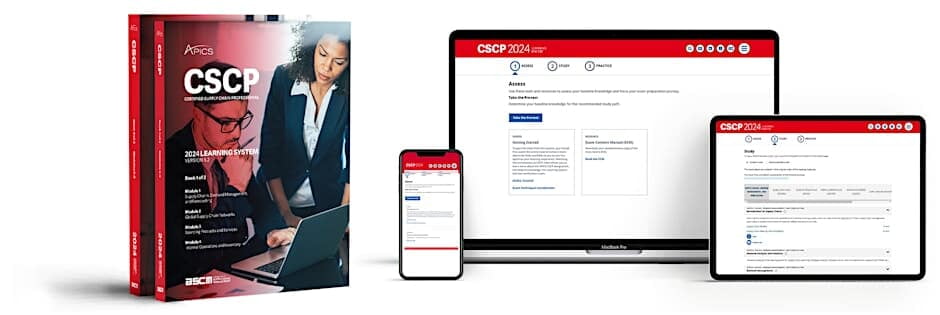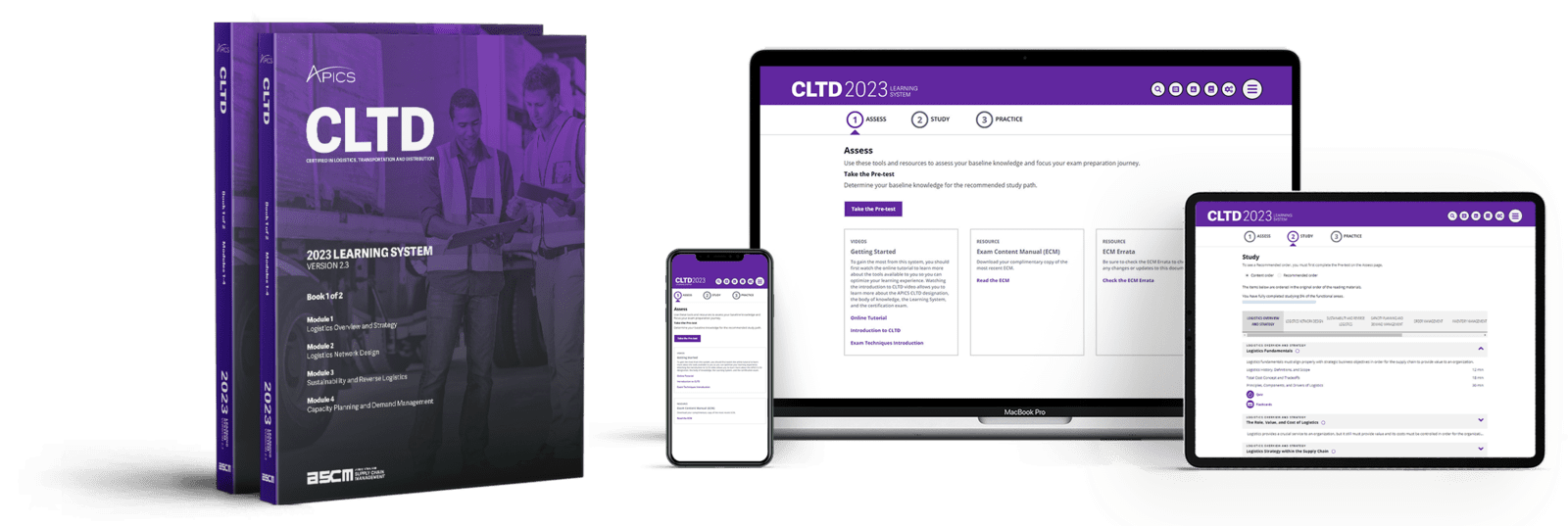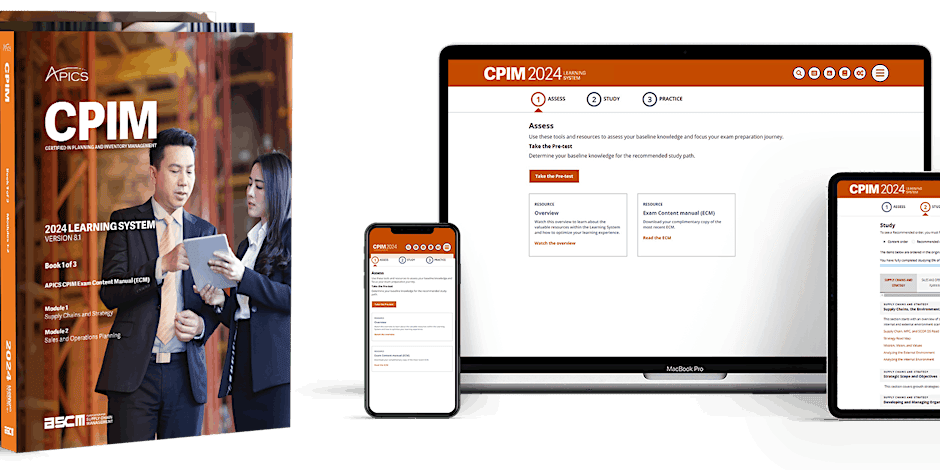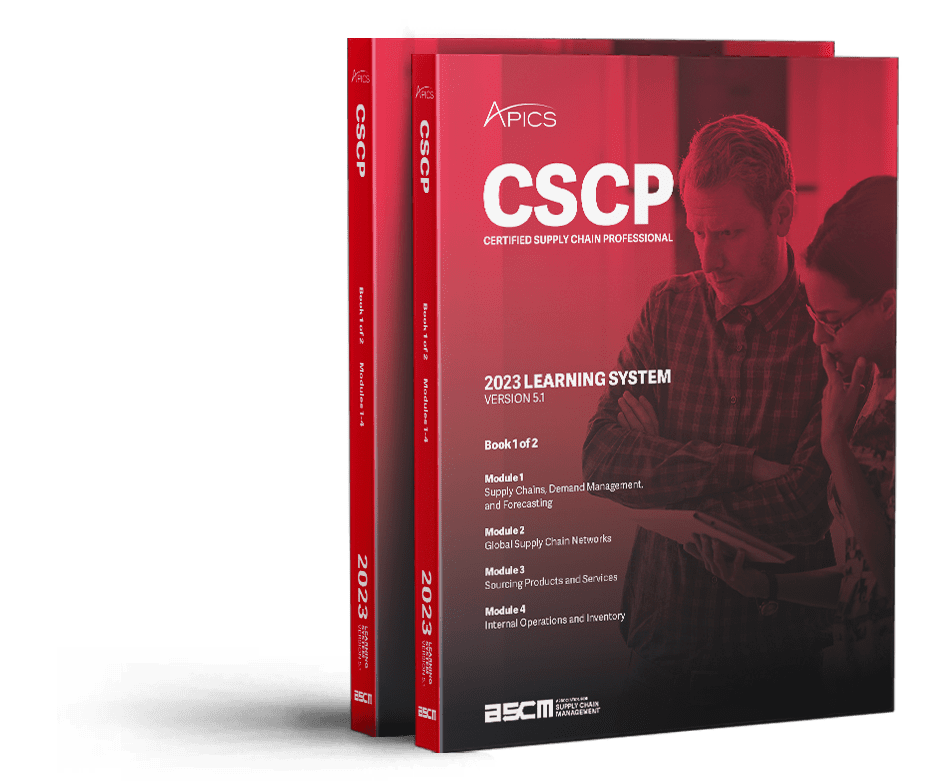
online delivery mode only
APICS CSCP 5.0 - Certified Supply Chain Professional
供应链职业人专业资格认证
APICS CSCP is a new professional development/education and certification program, which becomes the global standard in supply chain education and certification since its introduction in 2006. It offers a broad view of the field that extends beyond internal operations to encompass all the steps throughout the entire supply chain – from the supplier through the company, to the end consumer. The APICS CSCP Learning System is a comprehensive professional development and exam preparation program. It consists of three print modules and web-based study tools that reflect the entire APICS CSCP Exam Content Manual (ECM) and provides you with a broad view of global end-to-end supply chain management.
The CSCP Learning System:
Module 1: Supply Chains, Demand Management, and Forecasting
Module 2: Global Supply Chain Networks
Module 3: Sourcing Products and Services
Module 4: Internal Operations and Inventory
Module 5: Forward and Reverse Logistics
Module 6: Supply Chain Relationships
Module 7: Supply Chain Risk
Module 8: Optimization, Sustainability, and Technology
CSCP is warmly welcomed by the high-level supply chain management professionals and the consultants from the world when it first comes to the market. Till end of 2013, the fact is:
★Over 32,000 APICS CSCP Learning Systems sold
★Over 24,000 APICS CSCP exams administered
★Almost 15,000 APICS CSCP designees working worldwide

APICS CLTD - Certified in Logistics, Transportation and Distribution
The APICS Certified in Logistics, Transportation and Distribution (CLTD) designation assess individuals based on a comprehensive body of knowledge, best practices and standards for those in the logistics, transportation and distribution industries.
Earning the CLTD credential makes you a recognised expert in the logistics, transportation and distribution fields. Certification demonstrates in-depth knowledge of a broad range of topics to set you apart from your colleagues — proving your high level of knowledge and skills. The CLTD will make you a more valuable asset to your organisation, keeping you and your organisation more competitive in today’s global economy.
The CLTD Learning System:
Module 1 Logistics Overview and Strategy
Module 2 Logistics Network Design
Module 3 Sustainability and Reverse Logistics
Module 4 Capacity Planning and Demand Management
Module 5 Order Management
Module 6 Inventory Management
Module 7 Warehouse Management
Module 8 Transportation
Module 9 Global Logistics Considerations
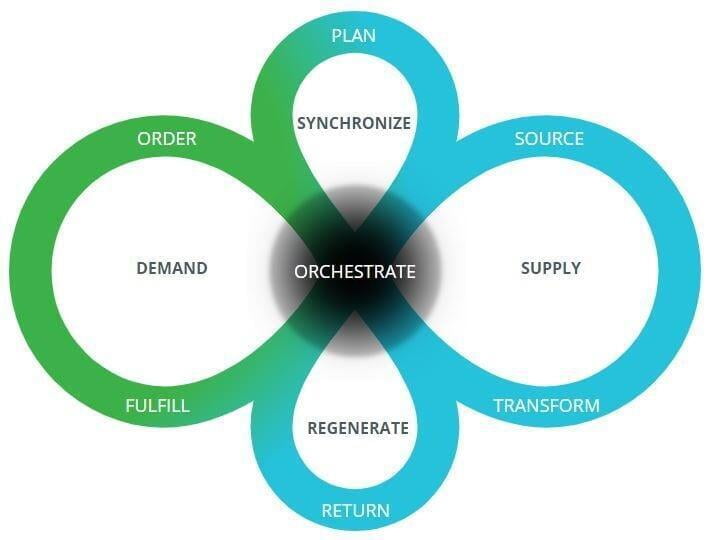
The Supply Chain Operations Reference Digital Standard (SCOR DS) is the only comprehensive, universally accepted and publicly available supply chain standard helping organizations across industries make dramatic and rapid improvements in their supply chain processes.
Implementing SCOR drives results and improves operations.
Typical results include:
- Operating income improvement
- Two-to-six times return on investment in the first year
- Improvement in return on assets for fixed-asset technology investments
- 30% faster digital transformation project implementations
- Reduction in information technology operating expenses through improved use of standard system functions
- Ongoing profit improvement of 0.5%-1% per year
What is NEW in this latest version?
SCOR DS has recently undergone a comprehensive update; modernizing the framework to include sustainability and the digital body of knowledge. This version shifts thinking from a linear supply chain model to a more synchronous network, leading directly to improved business performance.
The CPIM consists of the following content topics:
Module 1: Supply Chains and Strategy Section
1-A: Supply Chains, the Environment, and Strategy Section
1-B: Strategic Scope and Objectives Section
1-C: Developing and Managing Organizational Strategy
Section 1-D: Functional and Operational Strategies
Section 1-E: Production Environments, Types, and Layouts
Section 1-F: Performance Monitoring and KPIs
Section 1-G: Risk Management
Section 1-H: Capital Equipment and Facilities Section 1-I: Sustainability Strategies
Module 2: Sales and Operations Planning
Section 2-A: S&OP Purpose and Process
Section 2-B: Aggregate Demand and Supply Plans
Section 2-C: Reconciling S&OP Plans
Module 3: Demand
Section 3-A: Demand Management
Section 3-B: Sources of Demand/Forecasting
Section 3-C: Forecast Performance
Module 4: Supply
Section 4-A: Creating and Validating the Master Schedule
Section 4-B: Using and Maintaining the Master Schedule
Section 4-C: Material Requirements Planning
Section 4-D: CRP and Scheduling
Section 4-E: Suppliers and Purchasing
Section 4-F: Changes and Product Life Cycle Management
Module 5: Detailed Schedules
Section 5-A: Planning Detailed Schedules
Section 5-B: Scheduling and PAC Methods
Section 5-C: Creating Production and Service Schedules
Section 5-D: Managing Detailed Schedules and Scheduling Materials
Module 6: Inventory
Section 6-A: Inventory Planning
Section 6-B: Inventory and Product Costs, Value, and Metrics
Section 6-C: Itemized Inventory Management
Section 6-D: Inventory Control
Module 7: Distribution
Section 7-A: Planning Distribution
Section 7-B: Replenishment and Order Management
Section 7-C: Waste Hierarchy and Reverse Logistics
Module 8: Quality, Technology, and Continuous Improvement
Section 8-A: Quality
Section 8-B: Technology
Section 8-C: Continuous Improvement
